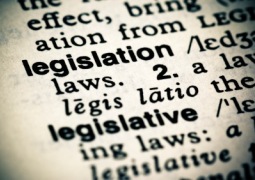
The Portfolio Committee on Transport today finalised public hearings on the National Land Transport Act Amendment Bill. The Chairperson of the Committee, Ms Dikeledi Magadzi, said the consultation process on the Bill would now move to the National Council of Provinces.
Three stakeholders, Uber, the Congress for Democratic Taxi Associations (Codeta), and the City of Cape Town were in Parliament to present their submissions on the Bill. Ms Yolisa Kani, Head of Public Policy at Uber Southern Africa, told the Committee that consideration needed to be given to e-hailing, and that Uber operators could not be treated as taxi meters.
“Uber is an on-demand service while taxi meters operate from a dedicated rank. One uses a sealed meter, whilst the other uses a predetermined fare,” she said.
Ms Kani requested that sections dealing with offences in the Bill be merged. “But also the challenges we are experiencing with the current licencing system is that every city and operator runs the process differently. For example, the City of Tshwane says that if the taxi starts from the operator’s house, then the house must first be registered as a business. This is difficult, as most drivers and operators rent back rooms and do not own the properties they reside in or they stay in informal dwellings.
“The applications process is complex, blurred and lengthy. Operators are coming from a history of being unemployed. The system is designed in such a way that it is too difficult for operators to move up the ladder,” Ms Kani said. However, she said Uber welcomes the proposed amendments.
The City of Cape Town told the Committee that the Bill will not pass constitutional muster appears to only address challenges faced by the Gauteng province. Ms Melissa Moore of the City said the Bill seems to take away functions that the Constitution requires municipalities and metros to perform.
“It is drafted in such a way that it shifts the responsibility from a local to a provincial and even national sphere of government. This opens the City to risks. The public transport function is funded from the City coffers,” she said. “The purpose of the NLTA Amendment was to get metros assigned the function of public transport in full.”
Committee Members asked questions about the regulations governing Uber drivers and the taxi industry’s involvement in decision-making.
Ms Magadzi said the Bill was work in progress and that South Africa must embrace cyberspace and the information communication and technology sector. “It will not help our economy if we do not apply modern solutions to current issues.” The debate must move to the issue of cars and greenhouse emissions resulting in climate change. “The transport sector should respond to these,” she said.
The Department of Transport agreed with some of the issues raised by the City of Cape Town and said that it was impossible to distinguish between Uber operators and metered taxi drivers.
Sibongile Maputi
28 November 2017

